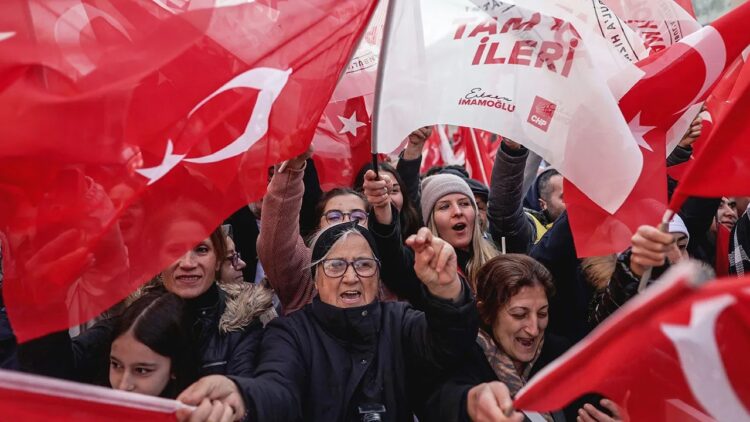Turks across the nation are poised to cast their votes on Sunday in municipal elections that have become a battleground for President Tayyip Erdogan’s bid to reclaim dominance over Istanbul from his formidable rival, Ekrem Imamoglu. The elections are pivotal, as they serve as a platform for Imamoglu to reassert the opposition’s strength in the wake of last year’s bitter defeats, while Erdogan aims to consolidate his power base.
In 2019, Imamoglu’s historic victory in Istanbul dealt Erdogan and his AK Party a significant blow after two decades of uninterrupted rule. However, Erdogan struck back in 2023, securing his own re-election and a parliamentary majority alongside his nationalist allies.
The outcome of Sunday’s elections holds the potential to either solidify Erdogan’s grip on Turkey, a NATO member and major emerging economy, or signal a shift in the nation’s divided political landscape. An Imamoglu triumph could fuel expectations of his ascent to national leadership.
Polling stations opened at 7 a.m. in eastern Turkey and will commence at 8 a.m. elsewhere, closing at 5 p.m. Initial results are anticipated by 10 p.m.
The race in Istanbul, a city of immense economic significance housing 16 million people, appears tightly contested. Imamoglu faces a formidable challenge from Murat Kurum, a former minister representing the AKP.
Economic concerns, including rampant inflation nearing 70%, along with the considerations of Kurdish and Islamist voters, will likely influence the outcome. Kurdish voters played a pivotal role in Imamoglu’s previous victory, with their support crucial to his success. Although the pro-Kurdish party DEM is fielding its own candidate this time, many Kurds are expected to rally behind Imamoglu once again.
In addition to Istanbul, Erdogan is also eyeing a victory in Ankara, the capital, which fell to the opposition in 2019 after decades under AKP rule. Despite the collapse of the opposition alliance that challenged him last year, Imamoglu remains a compelling figure, appealing to voters beyond his Republican People’s Party base.
Meanwhile, in the predominantly Kurdish southeast, the DEM seeks to reaffirm its strength following the state’s removal of pro-Kurdish party mayors over alleged ties to militants.
Erdogan faces challenges from within his own political sphere as well, with the rise in support for the Islamist New Welfare Party, bolstered by its hardline stance against Israel amid the Gaza conflict and dissatisfaction with the AKP’s economic management.
As Turks head to the polls, the outcome of these municipal elections holds significant implications for the future trajectory of Turkey’s political landscape and its international standing.

















Comments